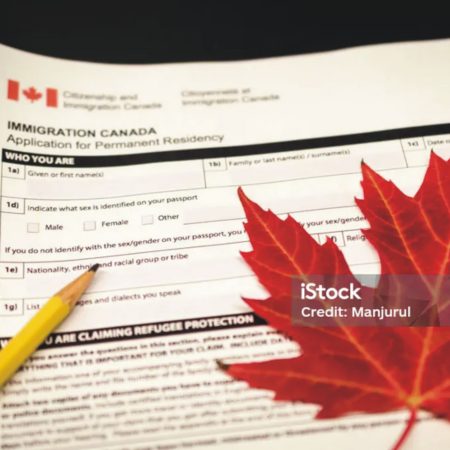Relocation Grants for Families: Financial Support When Traveling
Relocating to a new city, state, or country can be an exciting adventure for families seeking better opportunities. However, the costs associated with moving—travel expenses, housing, and other logistics—can quickly add up. Thankfully, relocation grants for families can ease the financial burden and make the transition smoother.
In this blog post, you will get to see what relocation grants are, how to find them, and steps to apply successfully.

What Are Relocation Grants for Families?
Relocation grants are financial assistance programs provided by governments, nonprofits, or private organizations to support families moving for specific purposes. These grants typically help cover expenses such as:
- Transportation and travel costs
- Temporary housing or rent deposits
- Moving supplies and services
- Childcare during the move
Unlike loans, relocation grants do not need to be repaid, making them a valuable resource for families who meet the eligibility criteria.
Why Are Relocation Grants Important for Families?
- Ease Financial Pressure: Relocation grants reduce the financial strain on families, especially those moving for work or education.
- Access Better Opportunities: Families can relocate to areas with better schools, jobs, and healthcare facilities.
- Support During Emergencies: Grants are particularly helpful for families displaced by natural disasters, conflict, or other crises.
Types of Relocation Grants
The following are types of relocation grants.
Work-Related Relocation Grants
Many employers and government programs offer relocation grants to families moving for employment purposes.
- Example: The U.S. Department of Labor’s Workforce Innovation and Opportunity Act (WIOA) provides support for job seekers relocating for work.
Education-Related Relocation Grants
Families moving for educational purposes can access grants designed to support students and their families.
- Example: Some universities in Canada and the U.S. offer relocation stipends for international students and their dependents.
Housing Relocation Grants
These grants help families secure housing in new locations, often targeting low-income households.
- Example: The U.S. Department of Housing and Urban Development (HUD) offers programs like the Housing Choice Voucher Program.
Relocation Grants for Refugees and Immigrants
Programs aimed at refugees and immigrants often include financial assistance for relocation.
- Example: The International Organization for Migration (IOM) provides grants to support the relocation of refugee families worldwide.
Grants for Disaster-Displaced Families
Families affected by natural disasters, war, or other emergencies can access relocation aid.
- Example: FEMA (Federal Emergency Management Agency) in the U.S. offers grants to families displaced by disasters.
Where to Find Relocation Grants for Families
Here are some places or avenue you can secure relocation grants for you and your family.
Government Programs
Governments at local, state, and federal levels often provide relocation grants.
- Visit your local municipal office for information on available programs.
- Search online for government relocation assistance initiatives in your country.
Nonprofit Organizations
Nonprofits often step in to support families in need.
- Examples include the Salvation Army, Habitat for Humanity, and Catholic Charities.
Employer Relocation Packages
If you’re relocating for work, ask your employer about relocation grants or stipends. Many companies offer financial assistance to attract and retain top talent.
Educational Institutions
Schools and universities sometimes provide relocation grants for families moving to support a student’s education.
Online Resources
Websites like Grants.gov (U.S.) and similar platforms in other countries provide searchable databases of available grants.
How to Apply for Relocation Grants
Applying for relocation grants can be competitive, but these steps will increase your chances of success:
Step 1: Research Thoroughly
Identify grants suited to your family’s needs and eligibility. Check deadlines, application requirements, and funding limits.
Step 2: Gather Required Documentation
Prepare documents such as:
- Proof of income or financial need
- Employment or admission letters
- Relocation plans and budget estimates
Step 3: Write a Strong Application
- Clearly explain why you need the grant and how it will help your family.
- Be concise, but include all required details.
Step 4: Submit Before the Deadline
Late submissions are typically disqualified, so ensure you meet deadlines.
Step 5: Follow Up
If you don’t hear back after the deadline, reach out to the grant provider for updates on your application status.
Examples of Relocation Grant Programs
Here are a few programs providing relocation grants for families:
- FEMA Individual Assistance Program (U.S.)
- Assists families displaced by disasters with relocation and housing costs.
- European Social Fund (EU)
- Offers financial support for families relocating within the European Union for work.
- Immigration, Refugees and Citizenship Canada (IRCC)
- Provides financial assistance to immigrants and refugees resettling in Canada.
- Relocation Assistance to Take Up a Job (Australia)
- Helps low-income families cover moving expenses when relocating for work.
Tips to Maximize Relocation Grant Benefits
- Plan Your Budget
Know how much you’ll need and allocate the grant funds wisely. - Combine Grants and Resources
You can apply for multiple grants if allowed. Combine them with employer or community support for maximum coverage. - Leverage Community Support
Connect with local organizations in your new location for additional resources and networking opportunities.
Success Story: How a Relocation Grant Transformed the Johnson Family’s Life
The Johnson family from Lagos dreamed of moving to Canada for better opportunities. They found a relocation grant through a provincial immigration program, which covered their travel and initial housing costs. Today, they’ve settled in Vancouver, where Mr. Johnson works as an IT specialist, and their children enjoy access to excellent schools.
Final Thoughts
Relocating can be a life-changing opportunity for families, but it doesn’t have to strain your finances. By exploring relocation grants for families, you can make your move smoother and more affordable.
Whether you’re moving for work, education, or a better quality of life, these grants can provide the support you need to succeed in your new environment.
Ready to start your relocation journey? Share your questions or experiences in the comments below!








